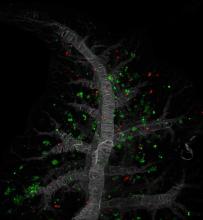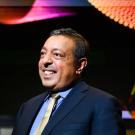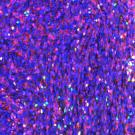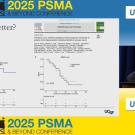News
How Do Neighborhoods Impact Children’s Chances of Surviving Leukemia?
Acute lymphoblastic leukemia (ALL) and acute myeloid leukemia (AML) are the most common pediatric cancers and among the leading causes of death in children. To improve kids’ chances of survival, early diagnosis and prompt hospital treatment are required. ALL also requires numerous outpatient visits
UCSF Scientist Receives High Honor for Exceptional Career
UC San Francisco researcher and campus leader Atul Butte, MD, PhD, has been recognized for his outstanding career in the computational and health sciences with induction into the American Academy of Arts and Sciences, one of the most prestigious and oldest honor societies in the U.S. Butte is a
AI in Cancer Care, Targeted Therapies Among Cancer Conference Talks
For latest coverage: UCSF at AACR Leading cancer researchers from UC San Francisco will present talks about advances in targeted therapies, cancer genomics, using AI to personalize cancer treatment, improving diagnosis of hard-to-treat cancers, and other cancer research topics at this year’s annual
Here’s How to Prime Tumors to be Defeated by Cancer Immunotherapy
One of the best ways to defeat cancer is by rousing the immune system to attack it. Experts have thought that immune cells had to be inside of tumors for one type of immunotherapy, known as checkpoint inhibitors, to work. But new research from UCSF shows otherwise – creating the possibility that a
Highlights from the Latest PSMA & Beyond Conference
In late March, the third PSMA & Beyond Conference, co-hosted by the University of California, Los Angeles (UCLA) and the University of California, San Francisco (UCSF), with support from the Prostate Cancer Foundation (PCF), was held in Los Angeles. This year the conference focused on the current
Popular CT Scans Could Account for 5% of All Cancer Cases A Year
Computed tomography (CT) scans may account for 5% of all cancers annually, according to a new study out of UC San Francisco that cautions against overusing and overdosing CTs. The danger is greatest for infants, followed by children and adolescents. But adults also are at risk, since they are the
How Your Immune System Plays Matchmaker to Find and Kill HIV
What do the Tinder dating app and our immune system have in common? They are both committed to swiping candidates to screen for the perfect match. However, instead of love, our immune system is looking for signs of viruses in cells that should be destroyed, according to Sophia Miliotis, a UC San









